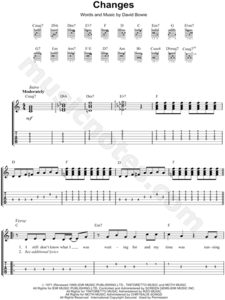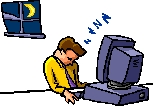kessel
wagakki-electro-otaku
Hi,
I started playing guitar and making music 30 years ago and as much as I love music I could never become friends with music theory.
Nevertheless I always wanted to learn some more theory, specially harmony, to improve my compositions and arrangement skills, but the main problem I've always found is that every way I've found so far feels pretty boring to me.
I'm not a friend of nomenclatures, was never good with words, so my only way to learn these would be a method that keeps mixing what you learn with instant direct practices to what you just learned, I mean in a really constant way, because otherwise I'm not going to remember anything I learned in the theory just in a question of seconds.
This is a concentration problem I've had all my life and very often I can't even read a single line of a book or magazine without forgetting the first words in a row before even reaching the last words in that same line, so I need to re-read it several times. Wait a minute, what was I writing about now? I forgot...
Ok, to the point, what method would you recommend for someone like me who needs to practice almost every step in theory explanations to really learn them?
I've been thinking of subscribing to some online course as graphics and visuals do help me in this kind of process, but then again most of them will just put too much words and boring graphs I can't yet read.
I've tried the mDecks apps, some video tutorials on youtube, just took a look at an orchestration course at Udemy and was already bored by watching the course preview full of text and not a single real piano player to see in it... and I'm starting to think the only way might be finding a music teacher that is able to teach me the theory in front of a piano or other instrument I can directly play the notes I get explained while learning.
What do you think? Are other people like me here that might have found an amusing method to learn music theory?
I started playing guitar and making music 30 years ago and as much as I love music I could never become friends with music theory.
Nevertheless I always wanted to learn some more theory, specially harmony, to improve my compositions and arrangement skills, but the main problem I've always found is that every way I've found so far feels pretty boring to me.
I'm not a friend of nomenclatures, was never good with words, so my only way to learn these would be a method that keeps mixing what you learn with instant direct practices to what you just learned, I mean in a really constant way, because otherwise I'm not going to remember anything I learned in the theory just in a question of seconds.
This is a concentration problem I've had all my life and very often I can't even read a single line of a book or magazine without forgetting the first words in a row before even reaching the last words in that same line, so I need to re-read it several times. Wait a minute, what was I writing about now? I forgot...

Ok, to the point, what method would you recommend for someone like me who needs to practice almost every step in theory explanations to really learn them?
I've been thinking of subscribing to some online course as graphics and visuals do help me in this kind of process, but then again most of them will just put too much words and boring graphs I can't yet read.
I've tried the mDecks apps, some video tutorials on youtube, just took a look at an orchestration course at Udemy and was already bored by watching the course preview full of text and not a single real piano player to see in it... and I'm starting to think the only way might be finding a music teacher that is able to teach me the theory in front of a piano or other instrument I can directly play the notes I get explained while learning.
What do you think? Are other people like me here that might have found an amusing method to learn music theory?





